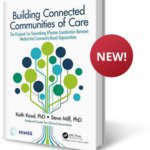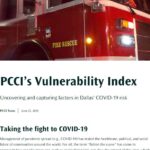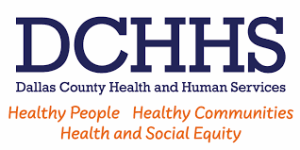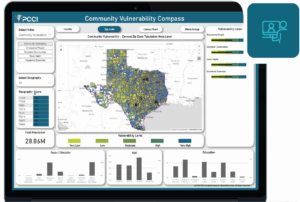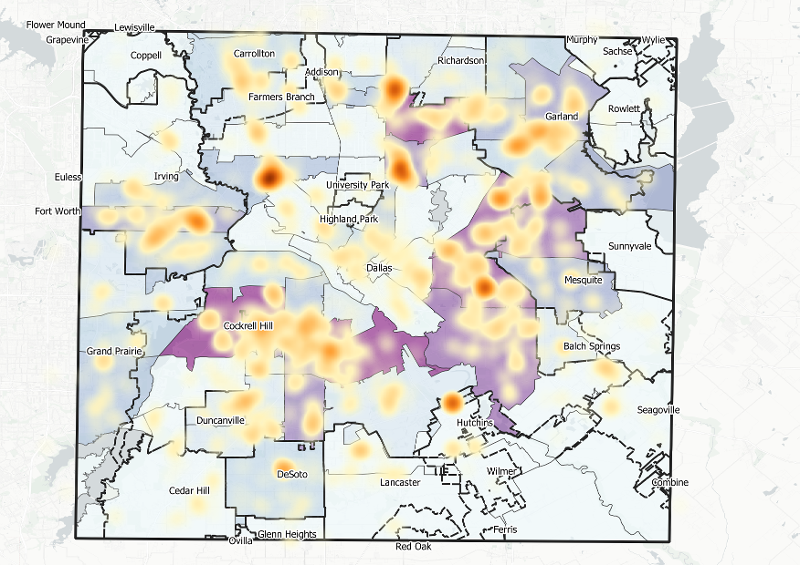
PCCI develops COVID-19 Vulnerability Index to identify the most at-risk in Dallas County
Dallas – Parkland Center for Clinical Innovation (PCCI), which improves healthcare for vulnerable populations using advanced data science and clinical experts, has developed and validated a multidimensional COVID-19 Vulnerability Index incorporating socioeconomic, clinical, mobility and demographic risk factors to accurately identify communities at high-risk for COVID-19 infection. The Vulnerability Index’s major finding shows that social deprivation is a leading factor in determining the risk for COVID-19 infection and the primary reason for racial/ethnic disparities in COVID-19 risk, more so than age, race or comorbidity rates.
The PCCI COVID-19 Vulnerability Index can be found on its COVID-19 Hub for Dallas County at: https://covid-analytics-pccinnovation.hub.arcgis.com/.
 PCCI’s Vulnerability Index determines communities at risk by examining comorbidity rates, including chronic illnesses such as hypertension, cancer, diabetes and heart disease; areas with large density of populations over the age of 65; increased social deprivation such as lack of access to food, medicine, employment and transportation; and mobility via modeling the rate at which individuals are able to observe stay-at-home and social distancing measures. Historical racial/ethnic and social disparities in health are also seen with COVID-19, with Hispanic and African American neighborhoods at highest risk.
PCCI’s Vulnerability Index determines communities at risk by examining comorbidity rates, including chronic illnesses such as hypertension, cancer, diabetes and heart disease; areas with large density of populations over the age of 65; increased social deprivation such as lack of access to food, medicine, employment and transportation; and mobility via modeling the rate at which individuals are able to observe stay-at-home and social distancing measures. Historical racial/ethnic and social disparities in health are also seen with COVID-19, with Hispanic and African American neighborhoods at highest risk.
“These kinds of precise data insights will help us understand communities and populations at greatest risk to COVID-19 and how to prioritize and tailor community interventions in order to proactively manage current and future outbreaks or other community-wide interventions,” said Steve Miff, PhD, President and CEO of PCCI.
Philip Huang, MD, Director of Dallas County Health and Human Services said, “From a community health perspective, these latest PCCI analytics continue to support our ongoing efforts to proactively identify hot-spots, rapidly deploy targeted testing that is accessible locally, inform and educate the community using culturally-sensitive approaches, and align other critical resources to support individuals and their families during these difficult times.”
The PCCI Vulnerability Index is multi-dimensional, incorporating stable, foundational components such as demographics, prevalence of comorbidities and social/economic resources. The Vulnerability Index dynamically monitors and models population’s ability to observe stay-at-home orders and near real-time COVID-19 incident rate.
“We are using analytics such as the PCCI Vulnerability Index to identify and prioritize our testing strategy, deployment of resources, and to facilitate transparency and collaboration across both public and private organizations that are crucial in these efforts,” said Kelvin Baggett, MD, City of Dallas COVID-19 Health and Healthcare Access Czar.
PCCI’s Vulnerability Index will be an essential tool as communities work to manage ongoing risks with COVID-19. Specific activities will include:
- Target and tailor neighborhood responses, such as pandemic response readiness incorporating focused partnerships with local organizations based on neighborhood-specific risk profiles
- Leverage partnerships for rapid deployment of testing, isolation or educational resources when rising risks occur
- Tailor interventions to address elements of social deprivation that lead to higher risk for COVID-19
- Provide culturally sensitive or culturally informed interventions targeting African American and Hispanic neighborhoods
Data Sources:
To build Vulnerability Index, PCCI relied on data from Parkland Health & Hospital System, Dallas County Health and Human Services Department, the Dallas-Fort Worth Hospital Council, U.S. Census and SafeGraph.
About Parkland Center for Clinical Innovation
Parkland Center for Clinical Innovation (PCCI) is an independent, not-for-profit, healthcare intelligence organization affiliated with Parkland Health & Hospital System. PCCI leverages clinical expertise, data science and Non Medical Drivers of Health to address the needs of vulnerable populations. We believe that data, done right, has the power to galvanize communities, inform leaders, and empower people.
###

